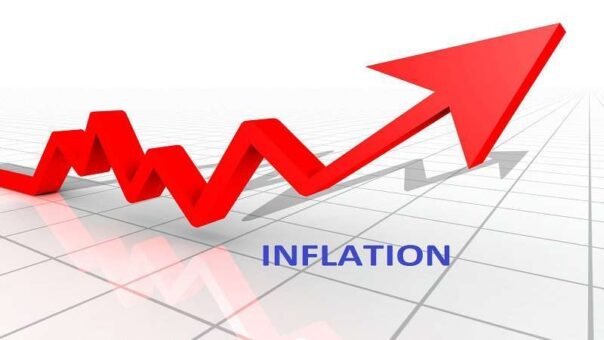October 2023 Sees Second Consecutive Week of Inflationary Trends
Karachi, October 13, 2023 – Pakistan has experienced a continued surge in inflation for the second consecutive week of October 2023, despite a significant reduction in petroleum prices during the first half of the month.
Data released by the Pakistan Bureau of Statistics (PBS) on Friday reveals that inflation has risen by 0.30 percent for the week ending October 12, 2023, compared to the previous week, where inflation saw a growth of 0.11 percent in the first week of the month.
READ MORE: SBP Weekly Forex Reserves Increase by $31 Million
It’s noteworthy that two key contributing factors, namely the prices of petroleum products and currency exchange rates, have witnessed a slowdown during the initial half of the month.
The reduction in petroleum prices was officially announced and came into effect on October 1, 2023. According to a notification issued by the Ministry of Finance, the price of petrol was reduced by Rs 8, resulting in a new rate of Rs 323.38 per liter, down from its previous level of Rs 331.38 per liter. Similarly, the price of high-speed diesel also saw a decrease of Rs 11, bringing it down to Rs 318.18 per liter from Rs 329.18.
In contrast to the downward trend in petroleum prices, the Pakistani Rupee (PKR) has made significant gains against the US dollar over the past six weeks. After reaching a historic low of PKR 307.10 against the dollar on September 5, 2023, the Rupee has exhibited remarkable resilience, marking a noteworthy comeback of PKR 28.52, equivalent to a 9.29 percent gain against the greenback.
READ MORE: Pakistan Reports Surge in Essential Items Inflation by 37.07%
The inflation data, released by PBS for essential commodities, highlights various notable price fluctuations for the week ending on October 12, 2023. Major increases are observed in the prices of food items, with Tomatoes seeing a 6.28 percent rise, Eggs increasing by 3.48 percent, and Salt Powdered up by 2.75 percent. Non-food items also saw notable changes, with Electricity Charges for Q1 surging by 8.59 percent and Energy Sever increasing by 0.55 percent.
Conversely, there were significant decreases in the prices of items such as Sugar (4.47 percent), Pulse Gram (2.75 percent), and Bananas (2.47 percent).
Of the 51 items analyzed, 17 items (33.33 percent) experienced price increases, 17 items (33.33 percent) saw price decreases, and 17 items (33.33 percent) remained stable during the week.
READ MORE: Pakistan Anticipates Robust Cotton Output and Positive Crop Prospects for 2023-24
When examining the year-on-year trend, the data indicates a substantial increase in several essential commodities, including Electricity Charges for Q1 (136.89 percent), Gas Charges for Q1 (108.38 percent), Cigarettes (95.36 percent), and Rice Basmati Broken (86.21 percent). However, significant decreases are observed in items such as Tomatoes (43.53 percent) and Onions (16.67 percent).
The rising inflation, despite a reduction in petroleum prices, raises concerns among policymakers and economists. The reasons behind this trend may be multifaceted, and market experts will continue to monitor these developments closely in the coming weeks.
READ MORE: National Savings Surpasses Rs 420 Billion Target in Fresh Bonds
